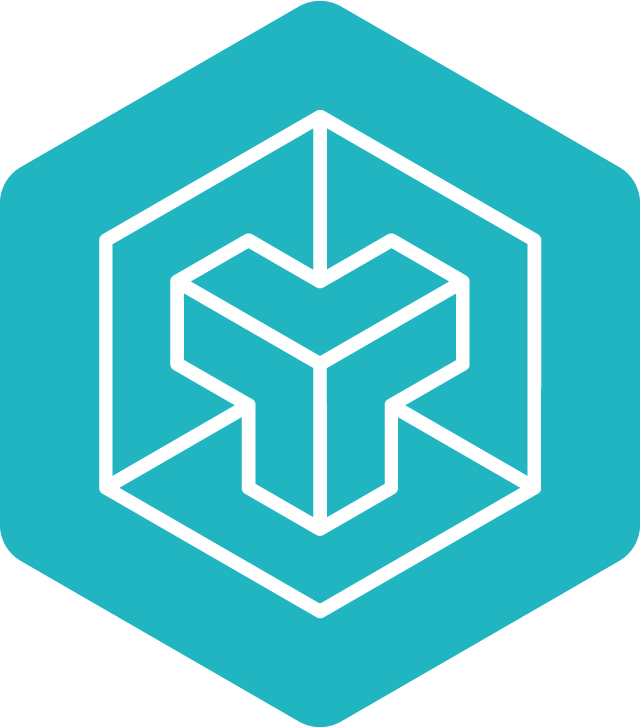# triton
**Repository Path**: wangyanhai/triton
## Basic Information
- **Project Name**: triton
- **Description**: No description available
- **Primary Language**: Unknown
- **License**: MIT
- **Default Branch**: main
- **Homepage**: None
- **GVP Project**: No
## Statistics
- **Stars**: 0
- **Forks**: 0
- **Created**: 2024-02-28
- **Last Updated**: 2024-04-28
## Categories & Tags
**Categories**: Uncategorized
**Tags**: None
## README

We're hiring! If you are interested in working on Triton at OpenAI, we have roles open for [Compiler Engineers](https://openai.com/careers/software-engineer-triton-compiler) and [Kernel Engineers](https://openai.com/careers/kernel-engineer).
| **`Documentation`** | **`Nightly Wheels`** |
|-------------------- | -------------------- |
| [](https://triton-lang.org/) | [](https://github.com/openai/triton/actions/workflows/wheels.yml) |
# Triton
This is the development repository of Triton, a language and compiler for writing highly efficient custom Deep-Learning primitives. The aim of Triton is to provide an open-source environment to write fast code at higher productivity than CUDA, but also with higher flexibility than other existing DSLs.
The foundations of this project are described in the following MAPL2019 publication: [Triton: An Intermediate Language and Compiler for Tiled Neural Network Computations](http://www.eecs.harvard.edu/~htk/publication/2019-mapl-tillet-kung-cox.pdf). Please consider citing this work if you use Triton!
The [official documentation](https://triton-lang.org) contains installation instructions and tutorials.
# Quick Installation
You can install the latest stable release of Triton from pip:
```bash
pip install triton
```
Binary wheels are available for CPython 3.7-3.11 and PyPy 3.8-3.9.
And the latest nightly release:
```bash
pip install -U --index-url https://aiinfra.pkgs.visualstudio.com/PublicPackages/_packaging/Triton-Nightly/pypi/simple/ triton-nightly
```
# Install from source
```
git clone https://github.com/openai/triton.git;
cd triton;
pip install ninja cmake wheel; # build-time dependencies
pip install -e python
```
Or with a virtualenv:
```
git clone https://github.com/openai/triton.git;
cd triton;
python -m venv .venv --prompt triton;
source .venv/bin/activate;
pip install ninja cmake wheel; # build-time dependencies
pip install -e python
```
# Building with a custom LLVM
Triton uses LLVM to generate code for GPUs and CPUs. Normally, the Triton build
downloads a prebuilt LLVM, but you can also build LLVM from source and use that.
LLVM does not have a stable API, so the Triton build will not work at an
arbitrary LLVM version.
1. Find the version of LLVM that Triton builds against. Check
`cmake/llvm-hash.txt` to see the current version. For example, if it says:
49af6502c6dcb4a7f7520178bd14df396f78240c
This means that the version of Triton you have builds against
[LLVM](https://github.com/llvm/llvm-project) 49af6502.
2. `git checkout` LLVM at this revision. Optionally, make additional
modifications to LLVM.
3. [Build LLVM](https://llvm.org/docs/CMake.html). For example, you might run
$ cd $HOME/llvm-project # your clone of LLVM.
$ mkdir build
$ cd build
$ cmake -G Ninja -DCMAKE_BUILD_TYPE=Release -DLLVM_ENABLE_ASSERTIONS=ON ../llvm -DLLVM_ENABLE_PROJECTS="mlir;llvm"
$ ninja
4. Grab a snack, this will take a while.
5. Build Triton as above, but set the following environment variables.
# Modify as appropriate to point to your LLVM build.
$ export LLVM_BUILD_DIR=$HOME/llvm-project/build
$ cd
$ LLVM_INCLUDE_DIRS=$LLVM_BUILD_DIR/include \
LLVM_LIBRARY_DIR=$LLVM_BUILD_DIR/lib \
LLVM_SYSPATH=$LLVM_BUILD_DIR \
pip install -e python
# Tips for building
- Set `TRITON_BUILD_WITH_CLANG_LLD=true` as an environment variable to use clang
and lld. lld in particular results in faster builds.
- Set `TRITON_BUILD_WITH_CCACHE=true` to build with ccache.
- Pass `--no-build-isolation` to `pip install` to make nop builds faster.
Without this, every invocation of `pip install` uses a different symlink to
cmake, and this forces ninja to rebuild most of the `.a` files.
- vscode intellisense has some difficulty figuring out how to build Triton's C++
(probably because, in our build, users don't invoke cmake directly, but
instead use setup.py). Teach vscode how to compile Triton as follows.
- Do a local build.
- Get the full path to the `compile_commands.json` file produced by the build:
`find python/build -name 'compile_commands.json | xargs readlink -f'`
- In vscode, install the
[C/C++
extension](https://marketplace.visualstudio.com/items?itemName=ms-vscode.cpptools),
then open the command palette (`Shift + Command + P` on Mac, or `Shift +
Ctrl + P` on Windows/Linux) and open `C/C++: Edit Configurations (UI)`.
- Open "Advanced Settings" and paste the full path to
`compile_commands.json` into the "Compile Commands" textbox.
# Running tests
There currently isn't a turnkey way to run all the Triton tests, but you can
follow the following recipe.
```shell
# One-time setup. Note we have to reinstall local Triton because torch
# overwrites it with the public version.
$ pip install scipy numpy torch pytest lit && pip install -e python
# Run Python tests using your local GPU.
$ python3 -m pytest python/test/unit
# Move to builddir. Fill in <...> with the full path, e.g.
# `cmake.linux-x86_64-cpython-3.11`.
$ cd python/build/cmake<...>
# Run C++ unit tests.
$ ninja test
# Run lit tests.
$ lit test
```
You may find it helpful to make a symlink to the builddir and tell your local
git to ignore it.
```
$ ln -s python/build/cmake<...> build
$ echo build >> .git/info/exclude
```
Then you can e.g. rebuild and run lit with the following command.
```
$ ninja -C build && ( cd build ; lit test )
```
# Changelog
Version 2.0 is out! New features include:
- Many, many bug fixes
- Performance improvements
- Backend rewritten to use MLIR
- Support for kernels that contain back-to-back matmuls (e.g., flash attention)
# Contributing
Community contributions are more than welcome, whether it be to fix bugs or to add new features at [github](https://github.com/openai/triton/). For more detailed instructions, please visit our [contributor's guide](CONTRIBUTING.md).
# Compatibility
Supported Platforms:
* Linux
Supported Hardware:
* NVIDIA GPUs (Compute Capability 7.0+)
* Under development: AMD GPUs, CPUs
